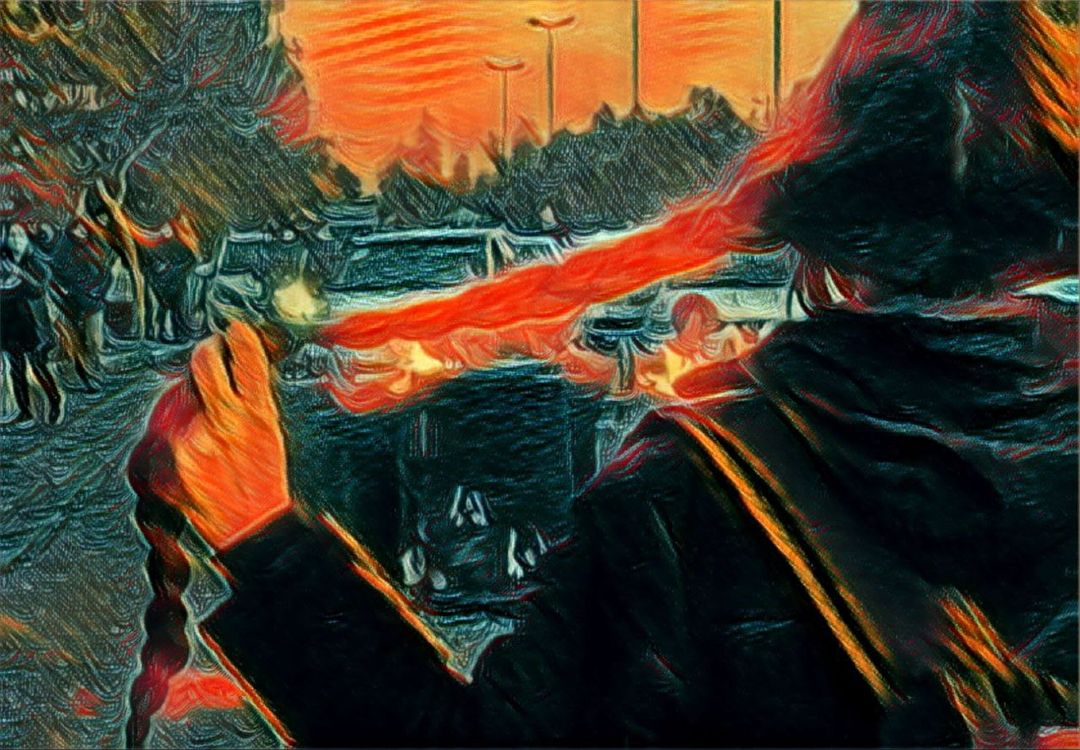This discussion revolves around the challenges and advancements of the Women, Life, Freedom Movement in Iran, which is resisting oppressive measures by the regime, including gender oppression and increasing death sentences for protesters.
The interview introduces a member of the Nasvan Revolutionary Committee, a secret women’s committee formed to address gaps in feminist organizing. This committee focuses on organizing working-class women and queer people, adopting a non-hierarchical yet structured approach to activism. The committee was formed in response to the Jina Uprising, emphasizing the need for more organized and deliberate activism against patriarchal structures.
The interview discusses how the Iranian government has co-opted the pro-Palestine discourse, which has impacted public perception. There is a narrative in Iran that criticizes the government for allegedly prioritizing financial support to Palestinian groups over addressing domestic economic issues, which has led to discontent among the Iranian population.
The discussion raises the concern about how Iranians can support Palestinian liberation without inadvertently supporting the regime’s agenda, emphasized is the importance of building strong, genuine regional solidarity networks that do not rely on repressive governments but rather on grassroots movements that can truly represent and support the cause of liberation across the region.
The struggle for Palestinian liberation is seen as intrinsically linked to the fight against internal repression within Iran. The speaker suggests that any real progress in Iran or the region depends on the interconnected liberation efforts, including the Palestinian cause.
The discussion touches on the importance of regional solidarity, particularly with Arab feminists, to strengthen the movement. It concludes by highlighting the importance of standing against imperialism and forming coalitions of grassroots movements to achieve true liberation and systemic change in Iran.
The repressive measures taken by the regime, the increasing death sentences against those who dare to protest oppression and patriarchy, all raise the question: will this lead to an era of fear and stagnation or will dissidents find new ways of manifesting?
Q: What can you tell us a bit more about Nasvan? Why did it come to life to respond to what gaps exactly?
A: The Nasvan Revolutionary Committee revolves around the main mission to organize working-class women and queer people. We use an ‘X’ instead of an ‘e’ in the word ‘woman’ to signify that we’re talking about both ciswomen and transwomen. We formed during the Gena Uprising in response to the dire need for a more robust and organized form of activism, because all of us had years of experience within the women’s movement and worked within various groups which mainly focused on a non-hierarchical structure. During the Gena Movement, we realized that we need a sort of structural change within the Iran system, but in order to achieve that, we need a more structured and deliberate form of activism.
Q: Can you talk a bit about the dynamics between the diaspora Iranians and those inside Iran? How would you describe it?
A: The majority of our revolutionary cells and working groups are in Iran, but we also have several members outside of Iran. We’re in contact regularly, discussing the politics of what’s happening and what needs to be done. We do have a diverse presence across different regions of Iran. Unfortunately, I cannot get into more details as it would not be safe for those members inside Iran.
Q: Rosa, if we want to go back to your roots which is the Jina movement, now we see that there are more repressive measures against people, against protesters and as I said also an increasing percentage of those are on the death row including a lot of women. Has this led women to withdraw from the public space or are they still confronting law enforcement and the Vigilante groups?
A: Very good question. I’m going to give a little bit of historical context because I think in order to understand what’s happening now, it’s important to understand where the Gena movement actually came from. The Gena movement, despite the fact that some groups see it as a very significant and one-of-a-kind event, operated as part of a decade-long period of mass insurgency and organized resistance in Iran. This includes both women’s rights movements and other forms of uprising against ethnic discrimination and economic issues. Over the past at least 10 years, there has been an increasing level of organized resistance in Iran.
Q: How do you support the Palestinian struggle for liberation without doing a service to the regime if you’re Iranian?
A: This is one of the things we talk about all the time within our committee. We believe that an actual class-based struggle, an actual revolution, would never happen without the liberation of Palestine. Standing in front of imperialism is a very important aspect of liberation for the region and we believe in it. However, Iran’s government’s hijacking of the anti-imperialist sentiment and third worldism since 1979 complicates this. We need true regional grassroots solidarity, not based on allying with any government or repressive regime, to make a coalition of grassroots movements and organizations against imperialism.
Q: When it comes to the present day, is it worse for women right now?
A: Obviously, the suppression has increased. The number of executions has been increasing more and more. At least 500 people were executed so far, and thousands of people were arrested. When it comes to women, the structural issues have always been there, and over the past couple of years, at least the past decade, the issues against women have gotten worse. For example, one of the issues that we work on in the committee is the issue of abortion and body autonomy. The government wants to control the population because there has been a decrease in population due to women having higher education, the age of marriage rising, and fewer people having children. This control is exerted by imposing draconian laws and rules against abortion, putting in place measures that were not as horrifying before.









What you think?